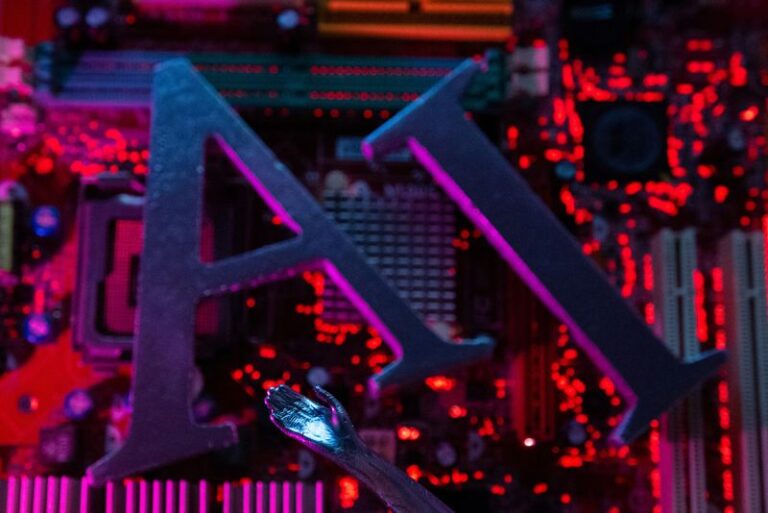Summer Jen
HONG KONG (Reuters) – Hedge funds looking for bargains in artificial intelligence (AI) stocks are flocking to South Korean semiconductor makers, betting a new wave of demand for high-performance memory chips and government spending will boost their value.
Britain’s Man Group, Singapore’s Fenghe Fund Management, Hong Kong’s CrowdAlpha Capital Management and East Eagle Asset Management are some of the hedge funds exploring AI investments in Asia, focusing on South Korean giants such as SK Hynix and Samsung Electronics, which have so far lagged behind the sector’s rise.
“If Nvidia is the king of AI, Hynix is the queen,” said Matt Hu, chief investment officer at $4 billion-market-cap FengHe, which acquired Hynix and Samsung this year.
Feng He and other hedge fund investors believe that the AI boom over the past year has tripled the value of U.S.-listed Nvidia’s shares to more than $3 trillion, while stocks such as Hynix have lagged behind more popular Asian AI companies such as Taiwan’s TSMC.
But as technology companies in the generative AI race rush to secure high-bandwidth memory (HBM) chips made primarily by Hynix, Samsung and U.S.-based Micron Technology, attention is shifting to South Korean chipmakers.
Hynix is Nvidia’s largest supplier of advanced HBM memory chips. FengHe’s Hu estimates that Hynix gets more revenue from Nvidia than TSMC, but Hynix’s stock trades at nine times forward 12-month earnings compared with TSMC’s 23 times.
These stocks also have broader tailwinds, including the South Korean government’s 26 trillion won ($19 billion) support package for the semiconductor industry and a new “corporate value enhancement program” that is in line with similar efforts to boost shareholder returns in Japan and China.
Hedge fund money has flooded into South Korea’s AI sector, helping the benchmark KOSPI index stay strong after hitting a seven-month high in June. South Korean stocks have seen the most inflows of any Asian emerging market so far this year, the biggest since 2008, according to LSEG data.
Hedge funds say the benefits of investing in South Korea outweigh the significant risks, including downward pressure on the won and restrictions on short selling of stocks in the domestic market.
KOSPI trades at 10 times 12-month forward earnings, compared with 18 times in Taiwan and 15 times in Japan.
More memory
Samsung and Hynix account for about 30% of the KOSPI by market capitalization.
Hynix shares are up more than 70% this year, while Samsung’s are up just 12% and the overall KOSPI is up nearly 9%.
Beyond HBM chips, a wider memory chip supply shortage is further pushing South Korean suppliers along: Samsung said last week it expects its second-quarter operating profit to rise more than 15 times due to rising chip prices.
Sumant Wahi, a portfolio manager at Man Group who focuses on technology stocks, expects prices of traditional dynamic random-access memory (DRAM) chips to also rise as the semiconductor industry shifts excess capacity to making HBM.
“There’s definitely an opportunity there,” he said.
Pierre Hobrechts, head of macro research at East Eagle Asset Management, expects Samsung to catch up in the second half of the year after significantly underperforming TSMC this year.
The AI theme in South Korea extends beyond chipmakers. Chris Wang, a portfolio manager at tech firm CrowdAlpha Capital Management, invested in electric-equipment maker HD Hyundai Electric Co. this year, betting that a surge in electricity consumption would benefit the stock. The company’s shares have risen 333% since January.
“South Korea could potentially sell more semiconductor equipment, cooling systems and even home appliances as its AI ecosystem expands,” said Simon Woo, Asia-Pacific technology research coordinator at Bank of America Securities.
Woo added that the long-running U.S.-China technology war also ensures that China will continue to use advanced memory chips from South Korea, as Chinese semiconductor makers have so far been unable to compete due to U.S. export embargoes.
(Reporting by Summer Jhen; Additional reporting by Ray Wee in Singapore and Gaurav Dogra in Bengaluru; Editing by Jamie Freed)


